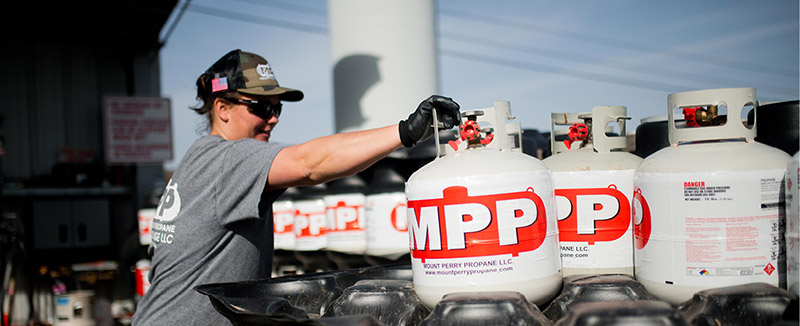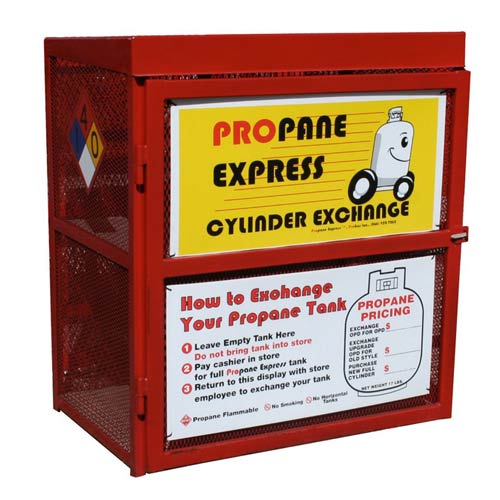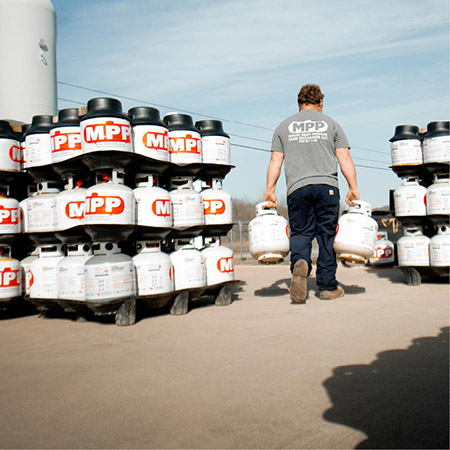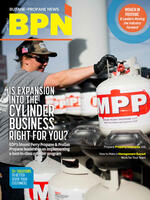
 The cylinder exchange business has typically been something only national propane marketers have specialized in. That’s no surprise since it takes a considerable investment of both time and energy to get into the business and do it right.
The cylinder exchange business has typically been something only national propane marketers have specialized in. That’s no surprise since it takes a considerable investment of both time and energy to get into the business and do it right.
But the cylinder exchange business is a segment of the industry that has grown quite steadily over recent years. It received a big boost during the pandemic when restaurants quickly pivoted to outdoor dining and found themselves in need of patio heaters.
With nearly 15 years in the propane industry — much of that running a cylinder exchange operation that turned more than 1 million cylinders each year — I’m happy to share my experience with this business segment.
Here are several things to consider — both positive reasons to explore the cylinder exchange business, as well as challenges you may encounter should you move down this path.
Reasons to Explore Starting a Cylinder Exchange Operation
This is a growing segment of the propane industry.
While we often think of retailers such as hardware stores, convenience stores, gas stations, and lawn and garden shops having cylinder exchange operations, there are many other types of customers who may welcome a trusted cylinder exchange partner. Consider:
- Restaurants that have patio heaters for their outdoor dining area
- Remote restaurants or lodges that rely on propane for cooking and water heating
- Industrial contractors who use propane for temporary heat in the winter months
- Campgrounds and RV parks for campers who use propane for operating their furnaces, stoves and ovens, as well as for heating their hot water
Seasonality is no longer much of a factor.
In the “old days,” barbecue grills were mostly for grilling steaks, hamburgers and hotdogs, and cooking on the grill was something folks did primarily during the summer months. Today, many consumers rely on their grills year-round, and the array of foods they cook has gone way beyond standard fare.
Plus, today 20-pound grill cylinders are used for far more than just barbecue grills. One big area of growth is the propane heater segment. I mentioned restaurants as one type of potential customer for your cylinder exchange business. Not only did many restaurants jump on the outdoor dining craze during the pandemic, but the popularity of outdoor fire pits and patio heaters for household patios also surged as more and more folks spent time outside.
It’s a fairly simple business to run.
Once you have several customers in place and you’ve determined the level of service each one needs, a cylinder exchange business is not difficult to run. Helping the members of your customer’s staff get comfortable with the sales process — dealing with the actual cylinder exchange itself — will be important. After that, it’s primarily making sure you understand the replenishment needs for each account. Some customers may need replenishing of their cylinders weekly, whereas others may need service two or more times each week. The key is to not let them run out.
Providing exceptional customer service is crucial to a successful cylinder exchange program. Your retail customers will appreciate the fact that they have propane cylinders on hand when their customers need them most (especially around the holidays!), so make sure you and your team take care of each account.
Consistent cash flow.
Depending on the size and type of your cylinder exchange accounts, you may receive payments weekly or monthly, and your payments may be via cash, check or even credit card. It all depends on the size and type of that customer’s account, so offering flexibility in terms of payment options is something to keep in mind.
Challenges to Starting a Cylinder Exchange Program
It takes a significant investment and a concentrated sales effort to get started.
Although the two biggest pieces of equipment are simply cages (which typically hold 18 cylinders) and 20-pound tanks, it still takes a significant investment in both to get started. So, it is not an inexpensive venture.
Add to that the fact that you must secure multiple retail accounts to make it lucrative. And because the cylinder exchange business has become rather competitive, it may not be easy to quickly establish new accounts.
If a potential cylinder exchange customer is already committed to another propane supplier, it may take an extremely competitive price — or even some type of incentive — to get them to make the switch. That is, unless they are getting lousy service from “the other guy.” Assuring the potential customer you can provide consistently great service will surely help you keep an account once you secure it.
 Don’t expect to get a big-box store as your customer.
Don’t expect to get a big-box store as your customer.
If you have dreams of getting a big-box store like Lowe’s or Home Depot as your key customer, sorry — it likely won’t happen. The giant retailers all have nationwide contracts, so getting that business is next to impossible.
That said, occasionally a multilocation regional chain will have a need for cylinder exchange. That’s how Mount Perry Propane built a substantial cylinder exchange business. Jordy Anderson — who founded and managed Mount Perry Propane until selling the company to Energy Distribution Partners (EDP) earlier this year — initiated an aggressive sales effort and ultimately landed two multistore retailers.
Those two accounts helped Mount Perry grow that segment of its business quickly and, thanks to its commitment to providing exceptional customer service, Mount Perry’s cylinder exchange business has thrived.
Wesley Johnson, operations manager at Mount Perry, adds that another important factor in the success of the business is keeping the cylinders looking sharp and in good working order.
“We turn thousands of cylinders each month,” says Johnson. “So, they can get pretty beat up. But we make it a point to refurbish them regularly and keep them presentable. After all, it’s our brand on the tanks, so we want them looking good.”
But even if you don’t expect to land a king-size cylinder exchange account, that doesn’t mean you can’t establish a successful business. At EDP’s operation, ProGas Propane, which serves Pittsburgh and the surrounding area, we’ve built a valuable niche serving commercial and industrial customers of all sizes without having a big-box store as one of our accounts.
Proceed or Hold Off?
Before moving forward with launching a cylinder exchange business, I strongly suggest you do your homework. Some steps you should take include:
- Check out the competition. Who in your area is already in the business? Are they doing a good job? You might casually ask a few retailers how they feel about the service they’re receiving from their cylinder exchange supplier.
- Do the math on your potential investment. What do cylinder cages cost? How many 20-pound cylinders would you need to get started? Do you have space at your current facility? And do you have the staff already on board to operate the business?
- Identify potential accounts. Explore commercial businesses that currently have a cylinder exchange program — and might be swayed to leave their current supplier — but also identify other potential accounts that might welcome establishing a program.
I hope I have given you valuable food for thought if you’ve been considering expanding into the cylinder exchange business. It can be a lucrative and successful segment of your overall operation. That said, be prepared to hustle to get it established and make sure you and your team are committed to providing exceptional service to your accounts once you’ve made the move.


